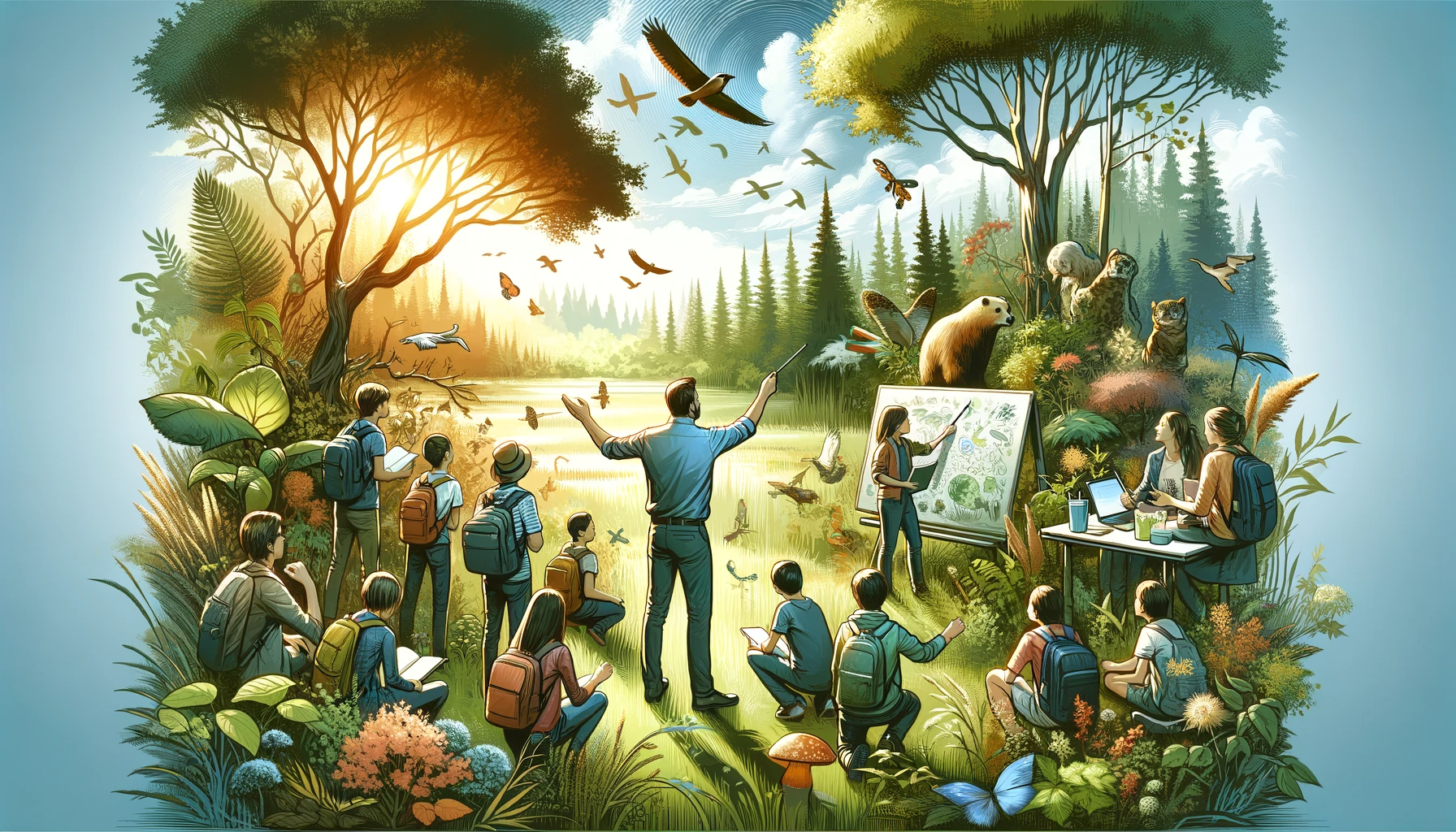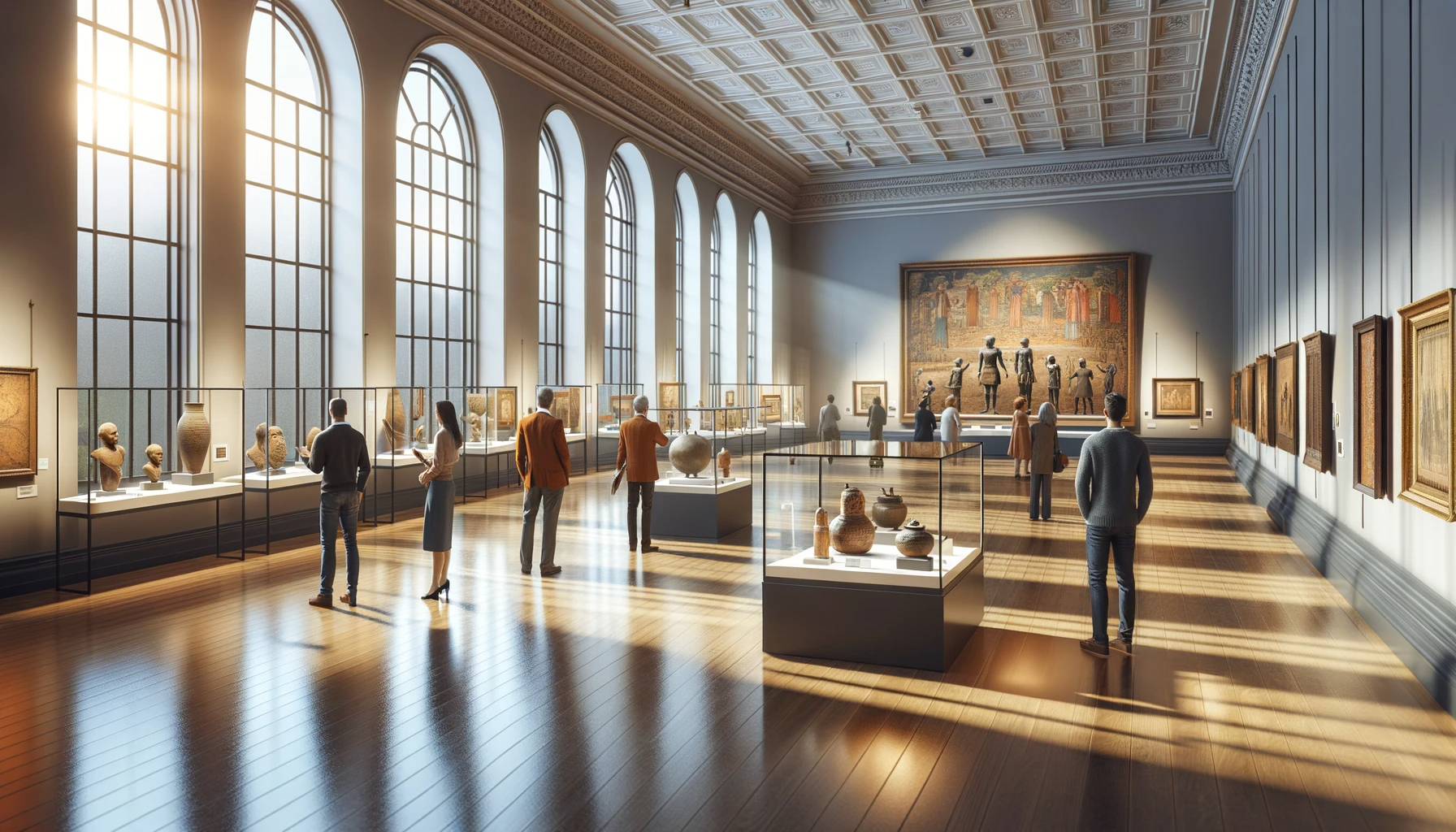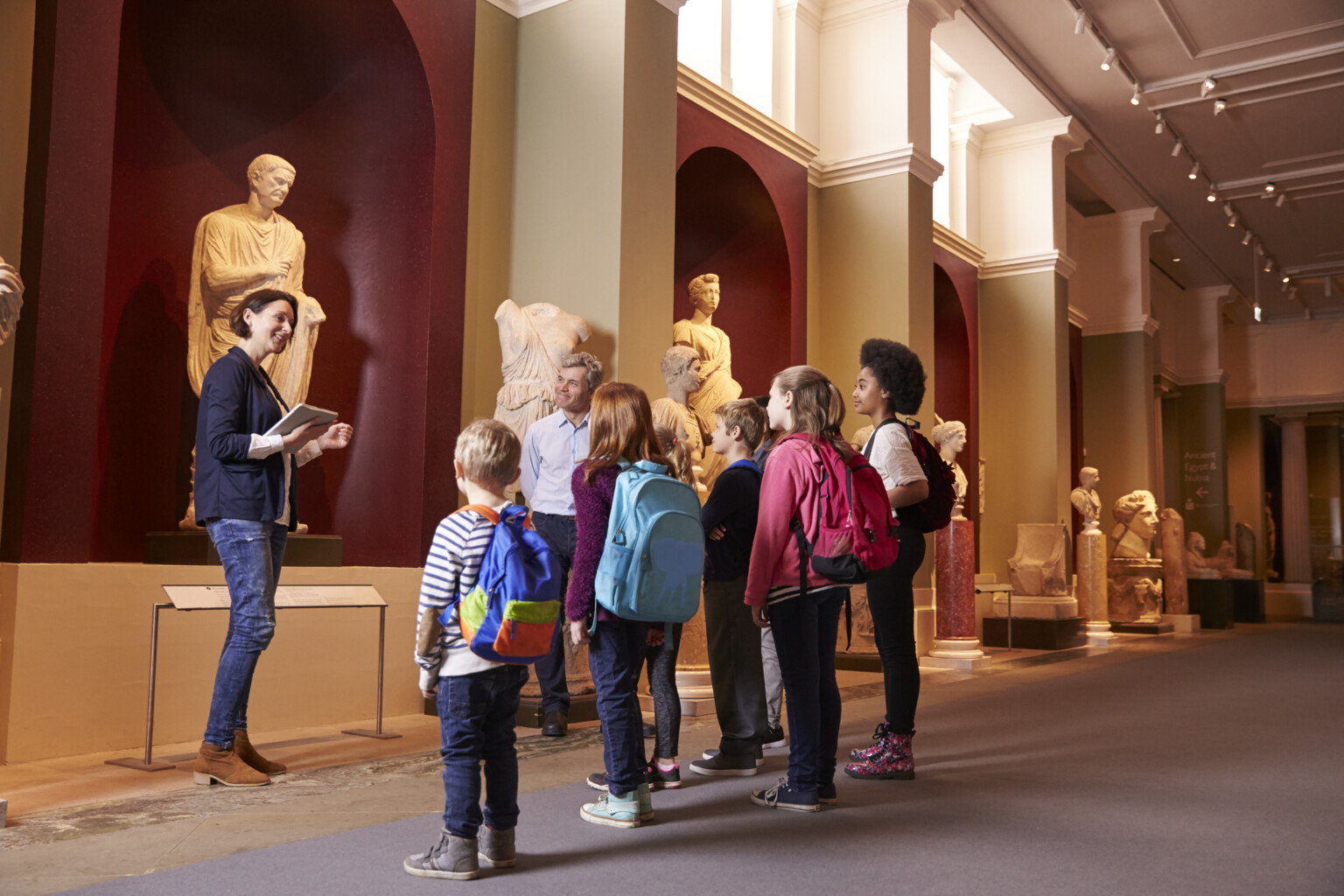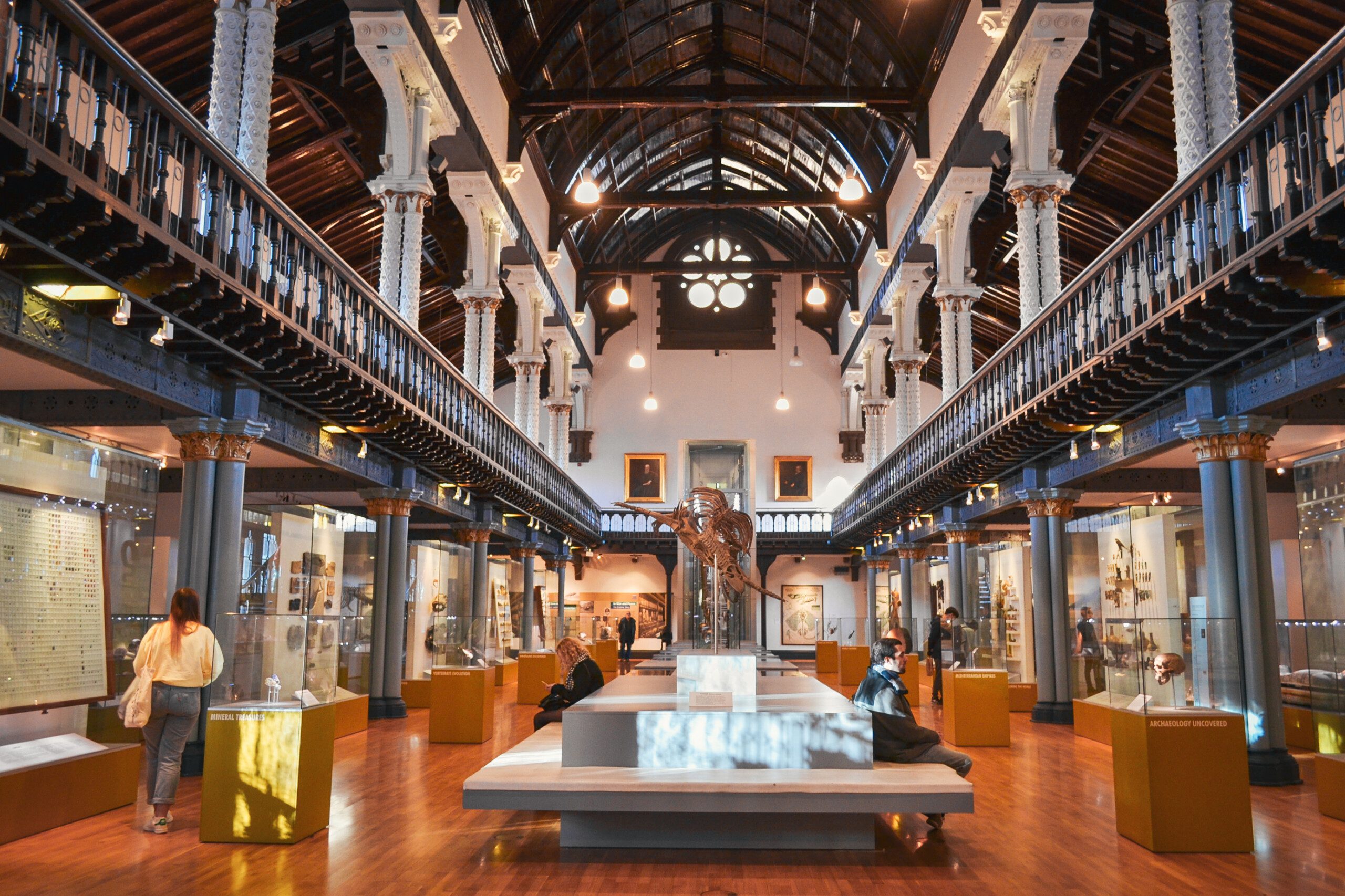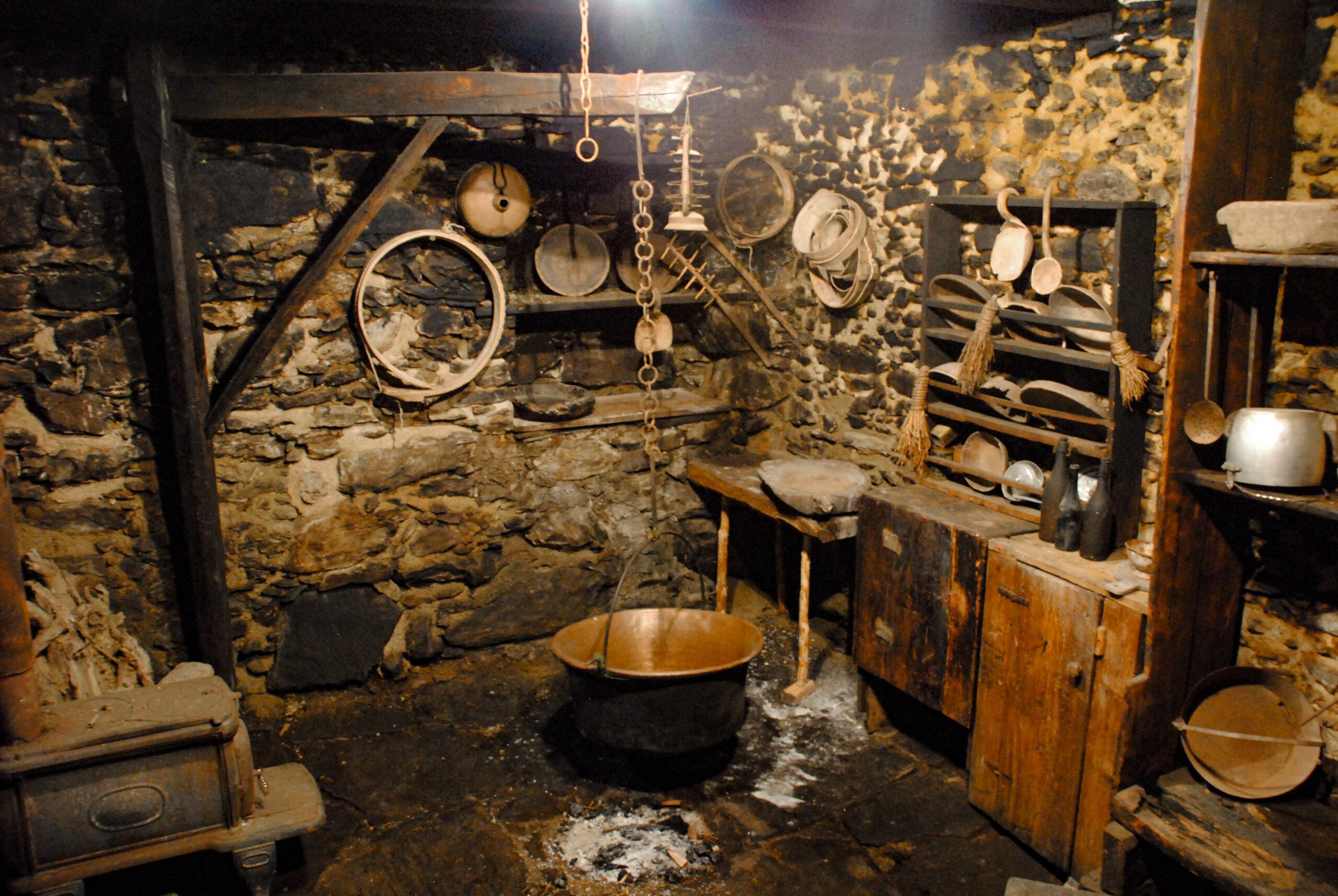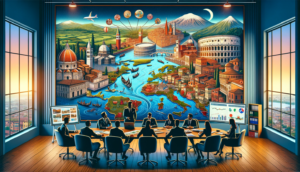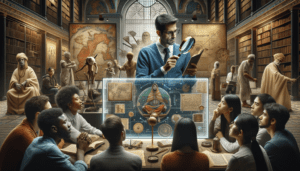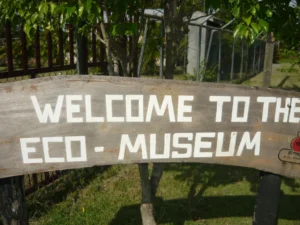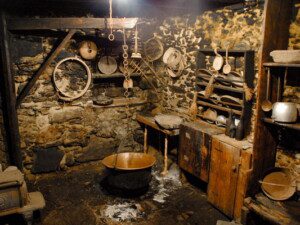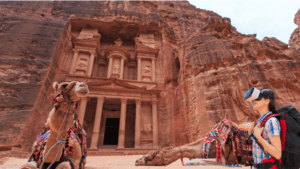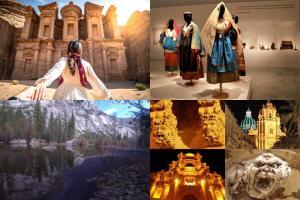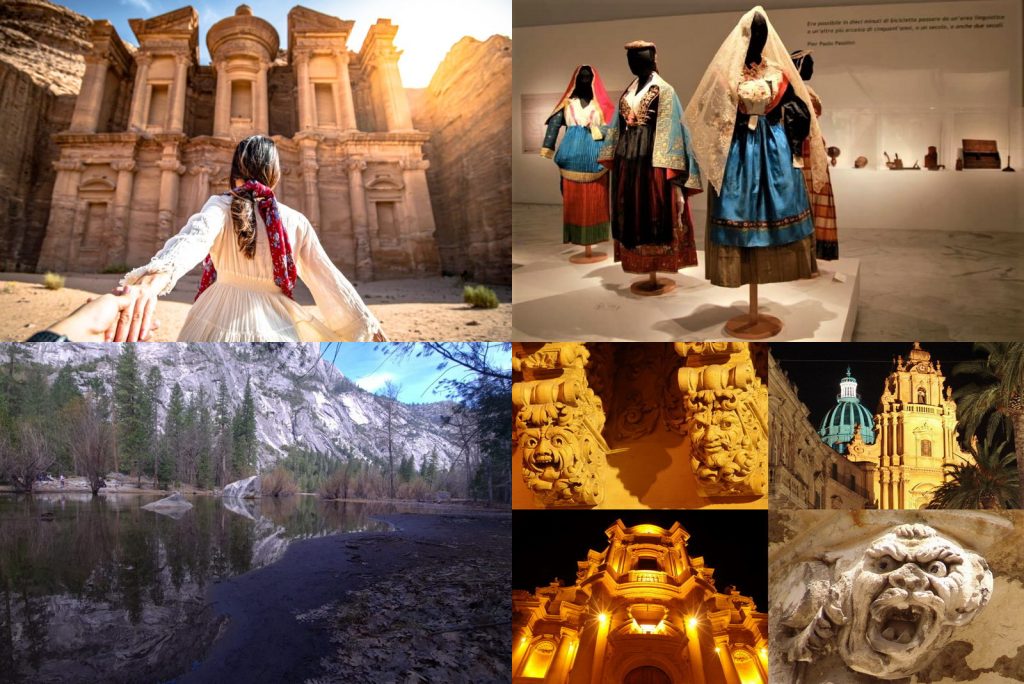Made in Italy Tourism Manager: Reference scheme

Scheme C) Unregulated profession built without regulatory references.
The reference scheme is based on the 'modelSkills Cycle' and is in line with the 'Tourism, Arts, Heritage Competence Framework (TAH-CF)'. the TAH-CF is defined in accordance with the European Qualifications Framework (EQF), the Recommendation of the European Parliament and of the Council 2009/C 155/02 (ECVET) and the APNR (Non-Regulated Professional Activities) scheme adopted by UNI for the technical standardization of unregulated professions.”
The scheme is made available to all stakeholders in the cultural tourism supply chain in order to collect comments and useful elements to improve its contents. All interested parties are invited to improve the scheme by sending their contributions to info@aiptoc.it
Description
PTUMN13: Made in Italy Tourism Manager (Artistic Craftsmanship) (V Level EQF)
This figure is contiguous but not identical to the professional figure of Made in Italy Tourism Operator.
The main difference between “Made in Italy Tourism Operator” and “Made in Italy Tourism Manager” is:
-
THEMade in Italy Tourism Operator he is typically a craftsman who directly promotes his art and craft within the tourism sector. This figure creates unique experiences that allow tourists to directly discover and appreciate Italian artistic craftsmanship.
-
Il Made in Italy Tourism Manager instead, it deals with developing and managing tourist itineraries that highlight Italian artistic craftsmanship, working in collaboration with various artisans. This figure has a broader role in the planning, organization and promotion of tourist routes.
Standards of Reference
- European Qualification Framework (EQF)
- Recommendation 2009 / C 155/02 (European Credit System for Vocational Education and Training - ECVET)
- Law 4/2013 relating to unregulated professions (Italy)
Specific tasks and activities
When assigning tasks, the following distinction was made:
- Fundamental tasks: essential tasks
- Optional tasks: additional tasks to the core that are at the discretion of the individual practitioner
Fundamental tasks and specific activities
- T1: Assess tourism needs and expectations (tourism demand)
- T2: Analyze the context of the Made in Italy tourist offer
- T2.1 Identify and Analyze sector legislation
- T2.2 Identify and Analyze the stakeholders (who are the interested parties: internal/external)
- T2.3 Locate and Analyze attractions (Tourism Heritage)
- T3: Analyze costs and benefits and carry out risk analysis (Risk Management)
- T4: Planning the Made in Italy tourist offer
- T5: Communicate the Made in Italy tourist offer
- T6: Create the Made in Italy tourist offer
- T6.1: Plan activities from a qualitative and operational point of view
- T6.2: Managing economic resources (budget)
- T6.3: Coordinate human resources (staff)
- T6.4: Guarantee the correct execution of the tourist offer
- T6.5: Verify and check compliance with applicable current legislation
- T6.6: Monitor the quality of the tourist offer
- T7: Improving the tourist offer (continuous improvement)
- T8: Evaluate Made in Italy tourist offers
- T9: Innovate Made in Italy tourist offers
Optional tasks
- T10: Carry out training on Made in Italy tourism
- T11: Interfacing in a foreign language according to the territorial target of reference of its customers
Skills, Knowledge and Autonomy and Responsibility (Skills)
Note: The competences necessary for a profession, which include skills and knowledge, constitute a dynamic whole. These may vary depending on specific territorial contexts and are subject to changes over time due to factors such as technological evolution or other sectoral developments. Therefore, the examples of skills and knowledge presented here are to be considered purely indicative and not exhaustive, and will be subjected to constant revisions and updates.
(Beta Version)
Fundamental tasks and specific activities for all specialist profiles
T1: Assess tourism needs and expectations (tourism demand)
Ability
- SQ1: Analysis skills
- SQ2: Ability to synthesize
- SQ10: Analyzing the explicit, implicit and binding requirements of users
- SP15: Analyze the tourist demand for Made in Italy
- SP109: Cultural context (know, analyze, interpret)
Additional required knowledge:
- KQ2: Quality Management - Factors, indicators and standards of quality in services
- KQ22: Quality Management - Factors (dimensions) and quality indicators
- KS3: Experiential Tourism
- KS16: Made in Italy tourism
- KS29: Tourism Marketing
- KQ33: Quality Management - Stakeholder Requirements Analysis
- KS413: Characteristics of Made in Italy Tourist Offers
T2: Analyze the context of the Made in Italy tourist offer
Activity T2.1 Identify and analyze sector regulations
Ability
- SQ1: Analysis skills
- SP1: Identify and evaluate the applicability of the rules for the protection and use of the Cultural and Landscape Heritage
- SP2: Identify and evaluate the applicability of the legislation on safety in the workplace with relevance to its reference sector
- SP3: Evaluate the applicability of funding for the sector supply chain
- SP4: Identify and evaluate the applicability of the Tourism Legislation
- SP22: Identify and evaluate the applicability of Sector Policies
- SP25: Evaluating the applicability of Programs, Conventions and Institutional Acknowledgments
Additional required knowledge:
- KS47: The legislation on privacy and the tourism sector
- KS48: The European Regulation 2016/679
- KS49: The legislation on safety in the workplace in the tourism sector
- KS50: Funding for the Tourism and Cultural Sector
- KS52: Consumer protection legislation
- KS16: Made in Italy tourism
- KS17: Integrated Tourism
Activity T2.2 Identify and analyze stakeholders (who are the interested parties: internal/external)
Ability
- SQ1: Analysis skills
- SP24: Identify the Strategic Stakeholders
- SP133: Networking and Collaboration (Create and maintain collaborations with local artisans to incorporate their works and techniques into tours)
Additional required knowledge:
- KS27: Local tourism systems
- KS28: Institutions and tourism promotion
- KS92: Supervisory and protection bodies
- KS411: Networking Strategies
Activity T2.3 Identify and Analyze attractions (Tourist Heritage)
Ability
- SP105: Cultural Heritage relating to Made in Italy (Identify, analyse, document, relate, contextualise, develop historical-comparative relationships)
- ST11: Use information search tools
- SP94: Territorial context from a cultural and historical anthropological point of view (analyze, document, report)
- SP100: Identify, analyze, interpret and document cultural identities of the territory taken as reference.
- SP105: Identify, analyze and document the cultural heritage of the territory taken as reference.
Additional required knowledge:
- KS194: Local cultural endogenous attractions
- KS195: Territorial natural endogenous attractions
- KS196: Induced territorial attractions
- KS263: Local cultural identities
- KS264: Tourist Heritage of the territory taken as reference
- KS352: Elements of Tangible and Intangible Cultural Heritage
- KS346: Artistic Crafts
- KS412: History and Techniques of Artistic Craftsmanship
T3: Analyze costs and benefits and perform risk analysis (Risk Management)
Ability
- SQ1: Analysis skills
- SP13: Analyzing and evaluating the territorial context to identify strengths and weaknesses
- SP16: Perform SWOT Analysis
Additional required knowledge:
- KS96: Management costs
- KS99 Risk Management
T4: Planning the Made in Italy tourist offer
Ability
- SQ11 Design processes and services
- SQ12: Implement, document and classify core processes
- SQ14: Propose process changes to facilitate and rationalize improvements
- SQ18: Identify, understand and evaluate quality factors, indicators and standards
- SP3: Evaluate the applicability of funding for the sector supply chain
- SP17: Contribute to the development of the tourist offer
- SP22: Identify and evaluate the applicability of Sector Policies
- SP25: Evaluating the applicability of Programs, Conventions and Institutional Acknowledgments
- SP93: Classify and evaluate the various types of tourist routes
Additional required knowledge:
- KQ1: Quality Management - The UNI EN ISO 9001 standard
- KQ22: Quality Management - Factors (dimensions) and quality indicators
- KQ11: Quality Management - Design and development;
- KS95: Planning of Tourist Offers
- KS126: Principles of Sustainable Development
- KT5: Basic IT and telematic tools
- KT16: Corporate Organizational Models
T5: Communicate the Made in Italy tourist offer
Ability
- SP8: Develop a Communication Plan for the reference sector
- SP11: Identify the web technologies to be used for tourism marketing
- SP39: Apply multimedia presentation techniques
- ST1: Ability to communicate
- ST6: Identify and apply IT tools for communication
Additional required knowledge:
- KQ34: Quality Management - Internal and external communication
- KS29: Tourism Marketing
- KS30: Tourism and Communication
- KS31: The Communication Plan
- KS32: Online Marketing and Promotion
- KS33: Web Marketing Techniques
- KS34: Social Marketing
- KS35: Online Travel Agencies (OTAs)
- KS100: Information technology for communication
- KS121: Relations with institutions
- KS268: Social Communication
- KS104: Communication and Conflict Management
- KS105: Communication styles and effective communication
T6: Create the Made in Italy tourist offer
Activity T6.1: Plan activities from a qualitative and operational point of view
Ability
- SQ3: Organizational skills
- SQ5: Planning skills
- SQ7: Ability to produce improvement plans
- SQ13: Implementing Procedures and Operating Instructions for Quality
- SP40: Knowing how to organize the spaces where the services and their offers are made
- SP41: Knowing how to organize the location and the "staging" of your tourist offer
- SP132: Enforce regulations regarding permits and authorization for events
Additional required knowledge:
- KQ7: Quality Management - Planning and monitoring of the service
- KQ8: Quality Management - The procurement system
- KQ26: Quality Management – Event quality standards
- KQ4: Quality Management - System Documentation; the Manual; Procedures and Operating Instructions;
- KS110: Events: The Location
- KS186: Event Planning
- KS188: The legislation relating to Authorizations and Permits regarding events
Activity T6.2: Manage economic resources (budget)
Ability
- ST9: Use corporate accounting and administration tools
- ST20: Identify and apply reporting tools
Additional required knowledge:
- KQ8: Quality Management - The procurement system
- KS96: Management costs
- KS103: Business Administration
- KT21: Reporting tools and procedures
Activity T6.3: Coordinate human resources (staff)
Ability
- SQ3: Organizational skills
- SQ4: Ability to control
- SQ9: Identify skills gaps
- ST1: Ability to communicate
- ST2: Group management skills
- ST3: Conflict management skills
- ST12: Assign roles and tasks in management processes
Additional required knowledge:
- KQ5: Quality Management - The management of human resources
- KS104: Communication and Conflict Management
- KS105: Communication styles and effective communication
- KT2: Group management techniques
- KT3: Conflict Management Techniques
- KT12: Techniques and methodologies for human resource management
- KT24: Leadership and Group Psychology
Activity T6.4: Guarantee the correct execution of the tourist offer
Ability
- SQ3: Organizational skills
- SQ4: Ability to control
- SP37: Knowing how to plan and coordinate the maintenance of infrastructures and equipment pertaining to them
- SP40: Knowing how to organize the spaces where the services and their offers are made
Additional required knowledge:
- KQ6: Quality Management - Logistic resources: equipment, infrastructure and work environment
- KQ9: Quality Management - Production and provision of the service;
- KQ10: Quality Management - Identification and traceability;
- KS1: Logistics
- KS187: Locations and Places used for events (Protection)
Activity T6.5: Verify and monitor compliance with applicable regulations in force
Ability
- SQ4: Ability to control
- SP1: Identify and evaluate the applicability of the rules for the protection and use of cultural heritage
- SP2: Check the correct application of the safety regulations in the workplace
- SP4: Verify the correct application of the Tourism Legislation
- SP42: Verify the correct application of the legislation on privacy
Additional required knowledge:
- KS39: The legislation for the protection and use of Cultural Heritage
- KS47: The legislation on privacy and the tourism sector
- KS49: The legislation on safety in the workplace
- KS52: Consumer protection legislation
- KS90: Copyright Law
- KS106: Tourism Legislation
Activity T6.6: Monitor the quality of the tourist offer
Ability
- SQ18: Identify, understand and evaluate quality factors, indicators and standards
- SQ19: Apply auditing tools
- SQ20: Apply monitoring methodologies and techniques
- SQ21: Apply Customer Satisfaction methodologies and techniques
- SQ22: Monitor and Evaluate the provision of services
Additional required knowledge:
- KQ13: Quality Management - Monitoring and measurement of processes and services
- KQ14: Quality Management - The Management of Non-Conformities and Corrective Actions
- KQ15: Quality Management - Evaluation of the quality of services
- KQ16: Quality Management - Internal inspections (Audit)
- KQ17: Quality Management - The ISO19011 standard
- KQ19: Quality Management - Conducting audits
- KQ31: Quality Management - Monitoring and audit
- KQ33: Quality Management - Monitoring and evaluation of the quality of events
T7: Improving the tourist offer (continuous improvement)
Ability
- SQ14: Propose process changes to facilitate and rationalize improvements
- SQ16: Evaluate and analyze individual processes to identify corrective and improvement actions
- SP21: Identify and provide support for the choice and application of innovative technologies for the reference sector
- SQ8: Manage the change request process
- SP10: Apply tools for measuring and evaluating events
- SP20: Understanding the impacts of new technologies in the processes of your sector
- SP35: Analyzing and interpreting market trends
Additional required knowledge:
- KQ35: Quality Management - Continuous Improvement
- KS38: The new emerging technologies
- KS184: Evaluation of Tourist Offers
- KQ26: Quality standard of tourist offers
T8: Evaluate Made in Italy tourist offers
Ability
- SP9: Apply tools for measuring and evaluating tourism competitiveness
- SP10: Apply tools for measuring and evaluating tourism offers
Additional required knowledge:
- KQ15: Evaluation of the quality of services
- KS25: Models of tourism competitiveness
- KS26: Innovative models for measuring tourism competitiveness
- KS181: Evaluation of Tourist Offers
T9: Innovate Made in Italy tourist offers
Ability
- SQ8: Manage the change request process
- SP20: Understanding the impacts of new technologies in the processes of your sector
- SP21: Identify and provide support for the choice and application of innovative technologies for the reference sector
- SP35: Analyzing and interpreting market trends
Additional required knowledge:
- KS22: Culture, tourism and economic development
- KS38: The new emerging technologies
- KS85: Sector policies
Optional tasks for all specialist profiles
T10: Carry out training on Made in Italy tourism
Ability
- SP36: To carry out training and information with reference to the subjects related to one's profession
- SP45: Develop training / information projects in the reference sector
- SP46: Curate and manage training / information events in the reference sector
Additional required knowledge:
- KS112: Teaching techniques and methodologies
- KS127: Methodologies and techniques for the evaluation of training events
T11: Interfacing in a foreign language according to the territorial target of reference of its customers
Ability
- ST8 Use foreign languages in the workplace according to the territorial target of reference of its customers
Additional required knowledge:
- KS113: At least one foreign language in relation to the territorial target of reference of its customers
Autonomy and Responsibility: Seventh EQF level
Profile Evaluation Criteria
To certify the possession of skills, it is proposed to take into consideration methodologies that take into account the following aspects in a non-mutually exclusive manner, i.e. possibly in combination with each other:
- Qualifications awarded in the academic field (Formal Learning)
- Specific Training (Non-Formal Learning)
- Work or Professional Experience (Informal Learning)
Work or professional experience can be demonstrated through various tools including:
- Curriculum Vitae
- Professional portfolio
- Objective placement on the market (awards, regional, national or international recognition)
Requirements for access to the professional figure
Since the professional figure is not organized in an order or college, the requirements may vary based on the relevant Professional Association or other criteria established by the individual interested parties. Below are the requirements adopted by AIPTOC - Italian Association of Tourism Professionals and Cultural Operators.
Reference diagram: SP/TAH-CF/PTUMN13
- Having attended specific training courses for the professional figure in question organized / recognized by Universities, Regions or Associations of professionals established pursuant to law 4/2013 and recognized by the MISE and at least six months, even non-continuous, of proven work or professional experience in the reference sector
Or
- Master's degree and at least one year, even if not continuous, with proven work or professional experience in the reference sector
Or
- Three-year degree and at least two years, even if not continuous, of proven work or professional experience in the reference sector
Or
- Second grade secondary school diploma and at least five years, even if not continuous, with proven work or professional experience in the relevant sector
Or
- At least 10 years of proven work or professional experience in the reference sector
Or
- Be included in the Registers of Professional Associations established pursuant to Law 4/2013 and recognized by the MISE as long as they refer to the competence in question
-
Related searches on the “ACTASP” Skills Archive Databases (UNDER IMPLEMENTATION)
Featured Heritage Interpretation
Featured training
Basic courses
High Specialization Courses



